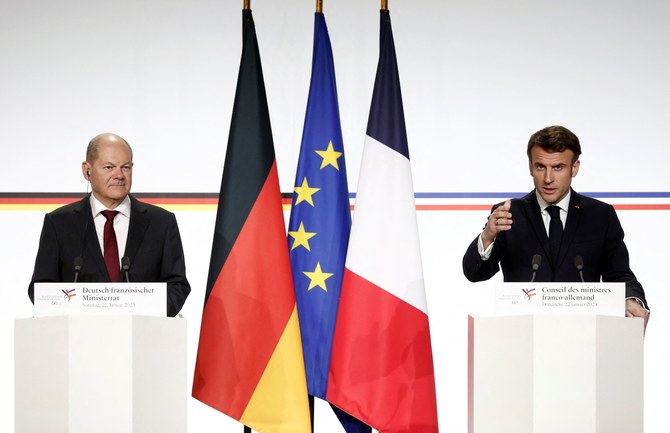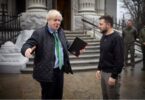Andrew Hammond
For much of the post-Second World War era, the close partnership between Germany and France has been the engine of ever closer European integration. However, that calculus is changing, potentially significantly so. Cooperation between these two powers has ebbed and flowed in the past, quite often depending on the personalities of the officeholders in Berlin and Paris. But there may now also be key structural forces in play as well.
The case for the latter is that Europe is, in the wake of the COVID-19 pandemic and Russia’s invasion of Ukraine, experiencing significant geostrategic changes that may transform the face of the continent. Part of this is the possible post-Ukraine war reawakening of Germany in a new European security landscape. This is injecting uncertainty into Berlin’s relationship with Paris. France has, in recent decades, sought to align closely with Germany to shape the EU policies of its more powerful neighbor to help project a French vision of European unity. At the time of writing, it is too early to assert conclusively what the impact of such a seismic shift might be, but it is already clear that bilateral ties have suffered because of the coolness of relations between President Emmanuel Macron and Chancellor Olaf Scholz. For instance, a joint Franco-German Cabinet meeting, scheduled for last autumn, was postponed at short notice amid big differences on energy and defense. Moreover, a meeting between Macron and Scholz that same month was overshadowed by tensions. What is also significant is the way in which, in the face of less cordial bilateral relations, both sides have sought to counterbalance this with other European allies. The latest example of this came on Thursday, with Scholz’s visit to Italy to engage with Italian counterpart Giorgia Meloni. While the left-of-center Scholz and right-of-center Meloni may be strange political bedfellows, they have generally been successful in smoothing over their disagreements – on issues ranging from the EU’s green investments to migration – to develop a constructive partnership. At their previous meeting, Scholz said the two were working “very intensively” together.
Seen through the prism of Europe’s balance of power, this is a blow for Macron, who invested much time in cultivating France as the key interlocutor with Italy under Meloni’s predecessor, Mario Draghi. In late 2021, the two nations even signed the so-called Quirinal Treaty, under which they committed to greater coordination in security, defense, migration, strategic sectors including AI, and macroeconomics. There was also greater coordination before EU leadership summits to try to agree on common positions – a process that has long taken place between France and Germany. However, the intent of Quirinal has withered under Macron and Meloni, whose relationship has sometimes been tempestuous. Last November, the Italian prime minister even accused the French government of betrayal as the two battled over who should take migrant boats. Another example of French-Italian tension came in February, when Meloni highlighted Macron’s “inappropriate” diplomatic snub to her after she was not invited to a dinner with Ukrainian President Volodymyr Zelensky during the latter’s visit to France. The Italian prime minister asserted that this move by Macron undermined the EU’s solidarity with Ukraine and was driven by the French leader’s attempt to distract his public from the country’s domestic issues, particularly the protests caused by his pending pension age increase.
Yet, amid this flux, the core fact remains that France and Germany are today the most influential states in the EU and they are the largest economies in the eurozone. In the longer term, it therefore remains possible that, even if Scholz and Macron do not patch up their relationship, future incumbents will see a compelling need to do so. There is also an outside possibility of a stronger Macron-Scholz relationship in due course. It should be remembered that, from time to time, Angela Merkel and Macron had a patchy rapport. However, despite not seeing eye to eye on multiple issues, they ultimately became a generally formidable duo plotting the future of Europe and its role in the wider world. So, some six decades after the Elysee Treaty, which established a new foundation for bilateral relations and brought to an end centuries of Franco-German enmity and wars, what is clear is that the ties between Berlin and Paris still have a significant bearing on EU relations. Both Macron and Scholz know that the remainder of their terms could therefore have an outsized impact on defining the bloc’s long-term future.
If they come together, there is still a window of opportunity to help steer the EU toward a pathway of deepening cooperation in the coming years. This covers issues from energy to defense, with member states sharing more power and decisions being agreed faster and enforced more quickly.
However, this is by no means assured, especially without the close, long-standing French-German motor of integration, given the key challenges, including growing euroskepticism across the continent. This unfolding situation comes in a context where there remains a multitude of views across Europe on the future of the Brussels-based club. Alternative scenarios in the next decade include the EU retreating, post-Brexit, to no more than the current economic single market, which seeks to guarantee the freedom of movement of goods, capital, services and people. While the direction of the EU is therefore still uncertain, Germany and France will have a huge bearing on its evolution. Despite their cool relationship, Macron and Scholz can still play a big role in defining the economic and political character of the bloc throughout the 2020s and beyond.







